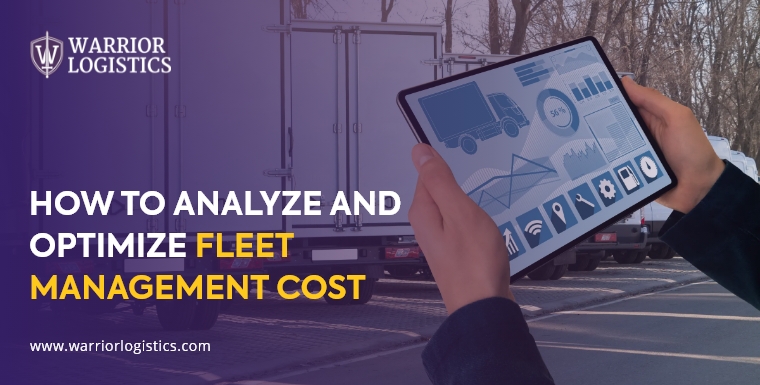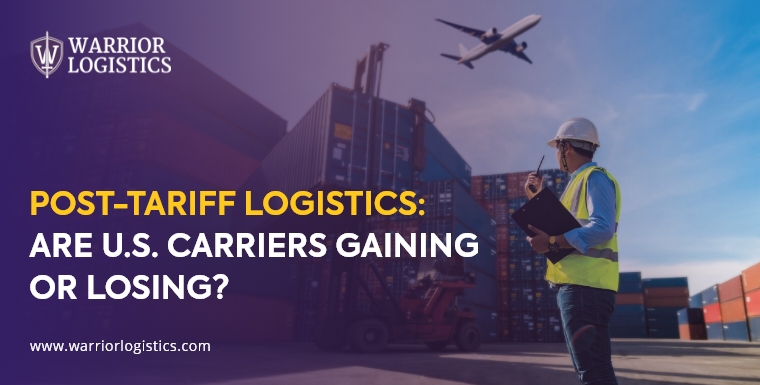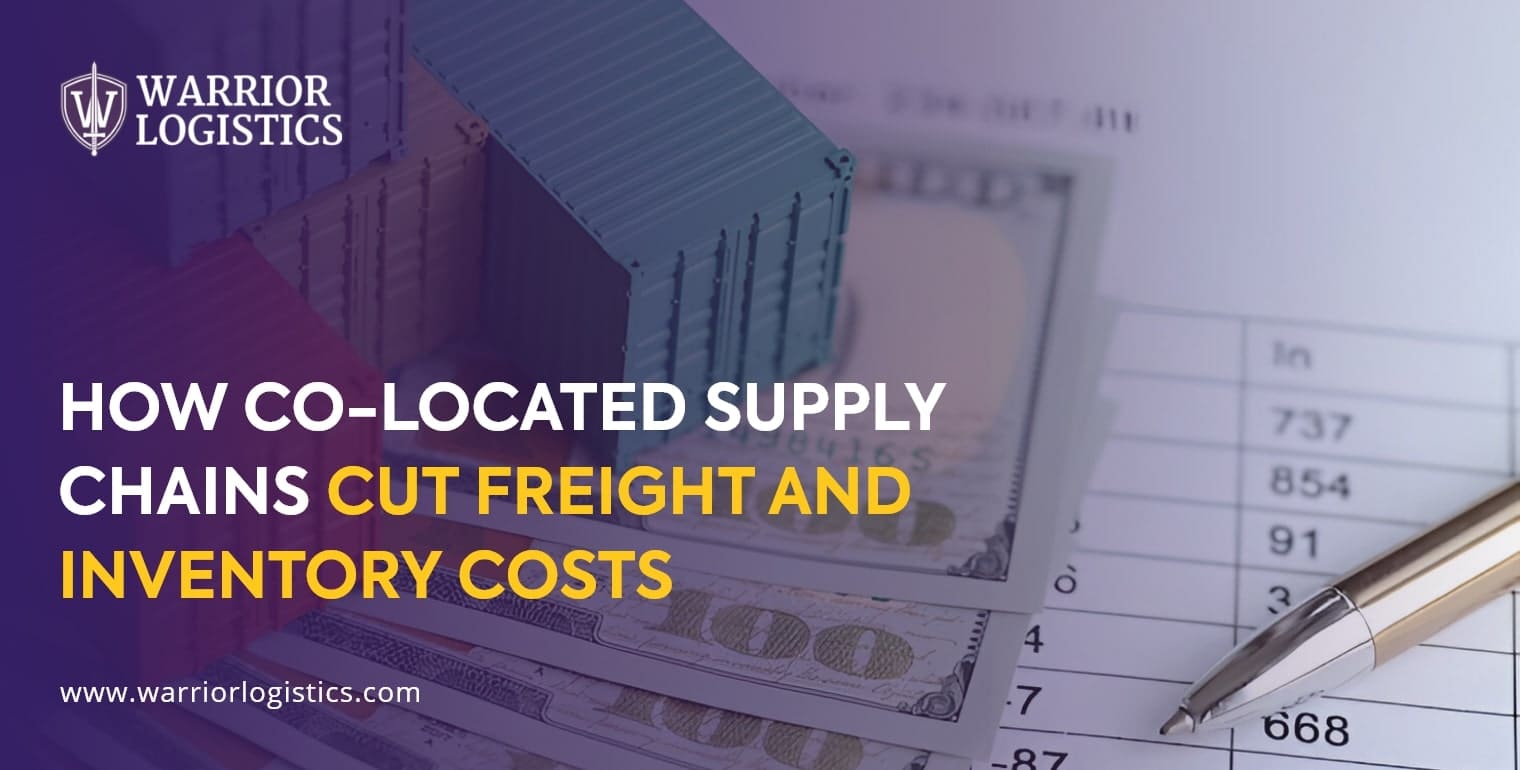How to Analyze and Optimize Fleet Management Costs
At Warrior Logistics, we know fleet management is more than just transportation. It’s about efficiency, reducing unnecessary costs, and maximizing productivity at every turn. Each decision, whether it’s about vehicle maintenance or fuel usage, has a direct impact on how your operation runs in the trucking and freight industry.
That’s why we take a thorough, data-driven approach to fleet management, making sure that every mile and every dollar counts.
Understanding Fleet Management Costs
Managing a fleet goes beyond keeping vehicles on the road. It’s about making sure every dollar spent works for you. To get a clear picture of fleet management costs, you need to break them down into manageable categories. Doing this allows fleet managers to spot inefficiencies and make improvements where it matters most.
- Fixed Costs: Depreciation, insurance, licensing, and taxes.
- Variable Costs: Fuel, maintenance, tolls, and driver wages.
- Operational Costs: Expenses related to fleet management software, GPS tracking, and administrative overhead.
With a solid understanding of these costs, you can better pinpoint where your money goes and find areas to optimize.
Fleet Management Cost Analysis
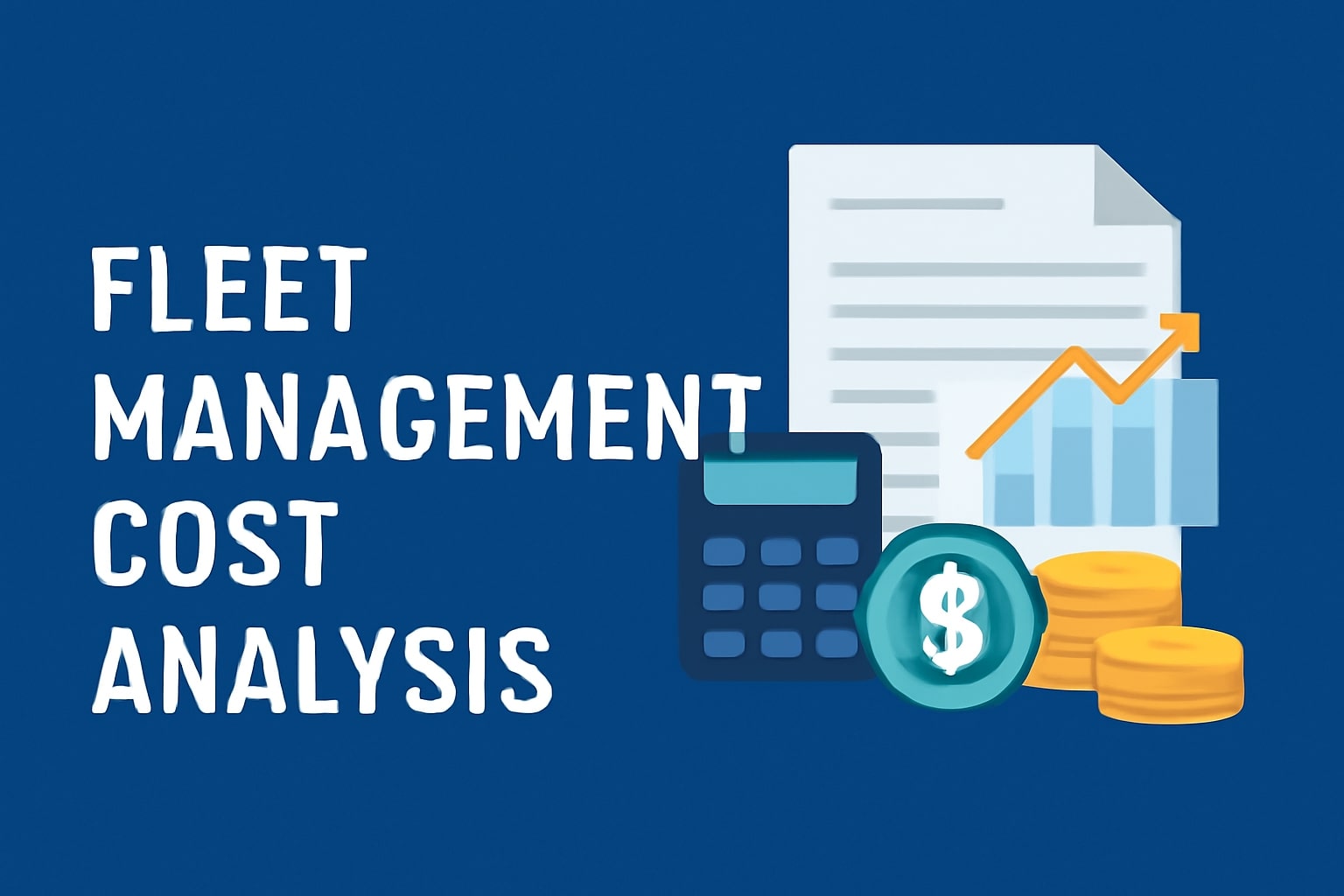
At Warrior Logistics, we don’t rely on gut feelings. We use data to guide our decisions. A fleet management cost analysis goes deep into every expense involved in operating your fleet. It’s about finding the inefficiencies, uncovering hidden costs, and spotting opportunities for improvement. With this data, you can make informed decisions that lead to real savings.
Here’s what should be factored into a cost analysis:
- Depreciation: Vehicles lose value over time.
- Insurance: Premiums for vehicle coverage.
- Licensing and Taxes: Fees that allow you to operate legally.
- Fuel: The cost of fuel consumed.
- Maintenance and Repairs: Costs for regular maintenance and any unforeseen repairs.
- Driver Wages: Compensation for drivers operating the vehicles.
By breaking these costs down, you can figure out where the majority of your resources go and where you might be able to improve.
Fleet Maintenance Costs
When it comes to fleet maintenance, hidden costs can sneak up on you. At Warrior Logistics, we don’t see maintenance as just an expense; it’s an investment. By focusing on regular, preventive maintenance, we keep our vehicles in top condition and reduce the likelihood of expensive breakdowns down the line.
Smart strategies to manage maintenance costs include:
- Preventive Maintenance: Scheduling regular maintenance to address issues before they escalate.
- Telematics: Using GPS and diagnostic tools to keep an eye on vehicle health in real time.
- In-House vs. Outsourced Maintenance: Weighing the costs of handling maintenance in-house versus outsourcing to specialists.
Preventive maintenance can extend vehicle lifespans and minimize costly repairs, ensuring your fleet stays reliable and on the road longer.
Fleet Management Fuel Costs
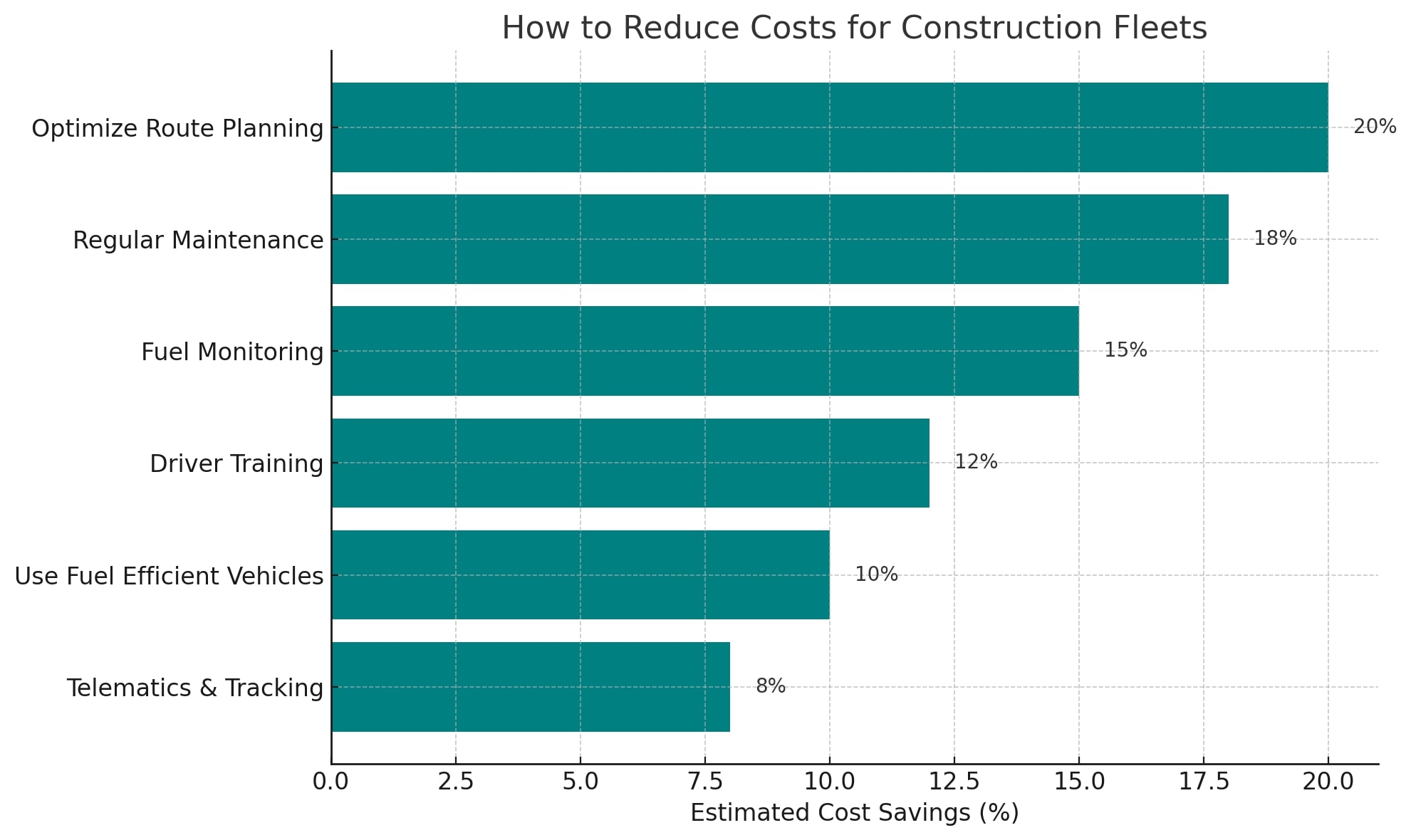
Fuel costs are one of the most significant expenses for fleets. At Warrior Logistics, we don’t just accept high fuel costs as a given. We approach the issue from multiple angles to reduce fuel consumption, lower expenses, and cut our environmental impact.
Here’s how we do it:
- Driver Training: We educate drivers on fuel-efficient driving practices like reducing idling and smooth acceleration.
- Route Optimization: By using software to plan the most efficient routes, we reduce unnecessary mileage.
- Vehicle Selection: Choosing vehicles that offer better fuel economy ratings.
- Fuel Management Systems: Implementing systems to keep track of fuel usage across the fleet.
By embracing these strategies, you can expect to see meaningful reductions in fuel expenses.
Construction Fleet Management Fuel Costs
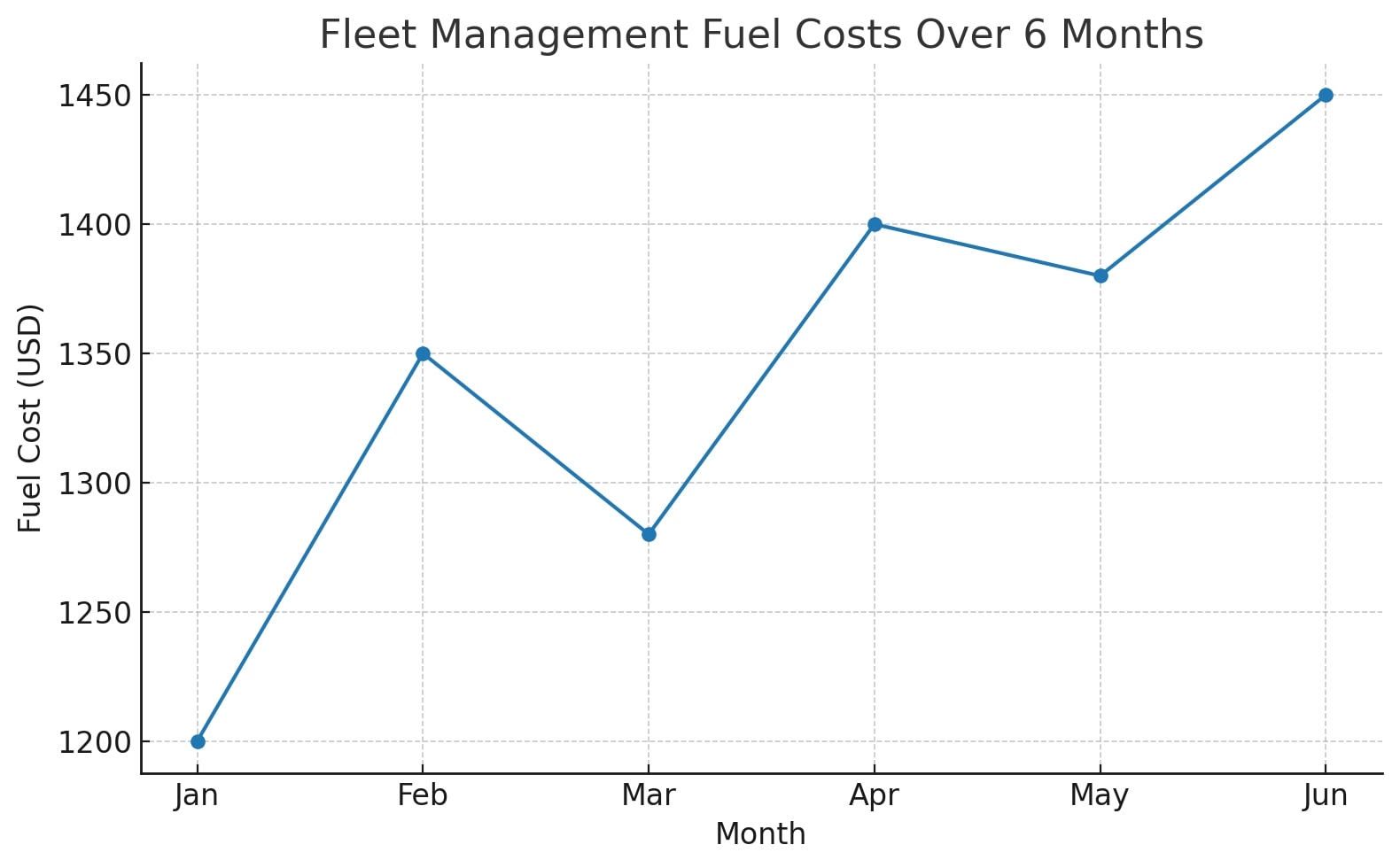
Fuel management in a construction fleet comes with unique challenges. With heavy machinery and stop-start operations, fuel consumption can quickly become unmanageable. But at Warrior Logistics, we meet these challenges head-on with specialized strategies that help our construction fleet run more efficiently.
- Equipment Utilization: Maximizing equipment uptime and reducing idle time lowers unnecessary fuel consumption.
- Fuel Tracking: We use robust tracking systems to monitor fuel usage on every job site, identifying opportunities for savings.
- Alternative Fuels: We’re always looking into alternative fuels that improve fuel efficiency and reduce environmental impact.
Pro Tip: One way to control expenses is by partnering with a carrier that specializes in flatbed transportation services for oversized loads.
Fleet Operation Costs
Running a fleet involves more than just maintaining the vehicles; it’s about running all systems smoothly. We don’t just manage operating costs; we actively optimize them.
Here’s how we do it:
- Administrative Overhead: Automating routine tasks and using fleet management software helps reduce overhead and free up time for your team.
- Compliance Costs: We stay ahead of regulatory requirements to avoid fines and penalties.
- Technology Investments: The right fleet management software and GPS systems help streamline operations, reducing overall costs.
The Warrior Approach to Cost Optimization
At Warrior Logistics, we don’t stop at managing costs. We continuously work to optimize them. We use advanced analytics, promote a culture of ongoing improvement, and encourage creative problem-solving to reduce costs and enhance fleet performance. By integrating freight forwarding solutions and leveraging flatbed trucking capabilities, we ensure efficient and cost-effective transportation options for our clients.
Read Blog: How Co-located Supply Chains Cut Freight and Inventory Costs
Final Thoughts
Optimizing fleet management costs isn’t a one-off task. It’s an ongoing commitment to excellence. By embracing a data-driven approach, staying proactive with maintenance, and focusing on fuel efficiency, you can significantly reduce your fleet’s operating costs.
At Warrior Logistics, we don’t just manage our fleet; we optimize it every step of the way, ensuring that every decision, every mile, and every dollar spent contributes to driving excellence in all we do.
